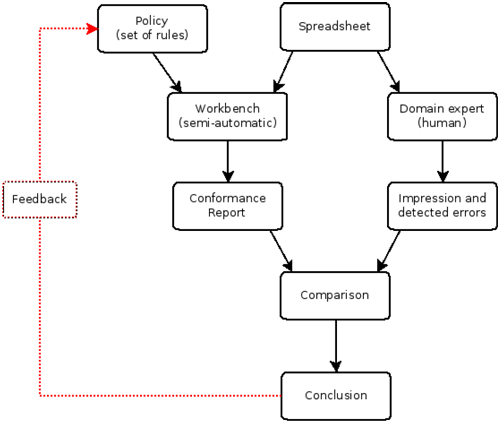Authors
Daniel Kulesz
Abstract
Thanks to the enormous flexibility they provide, spreadsheets are considered a priceless blessing by many end-users. Many spreadsheets, however, contain errors which can lead to severe consequences in some cases. To manage these risks, quality managers in companies are often asked to develop appropriate policies for preventing spreadsheet errors.
Good policies should specify rules which are based on "known-good" practices. While there are many proposals for such practices in literature written by practitioners and researchers, they are often not consistent with each other. Therefore no general agreement has been reached yet and no science-based "golden rules" have been published.
This paper proposes an expert-based, retrospective approach to the identification of good practices for spreadsheets. It is based on an evaluation loop that cross-validates the findings of human domain experts against rules implemented in a semi-automated spreadsheet workbench, taking into account the context in which the spreadsheets are used.
Sample

This diagram illustrates our approach:
- We specify a policy consisting of a set of rules based on suggested practices for spreadsheets from the literature.
- A human domain expert reviews the spreadsheet to provide a subjective, general impression about it. Any errors are reported.
- In parallel, the workbench checks the spreadsheet for any violations of the policy.
- We repeat the process with other spreadsheets from the same domain, maintaining the same policy.
- The expert's review and workbench checks are compared. This provides feedback to the policy process.
Publication
2011, EuSpRIG
Full article
From good practices to effective policies for preventing errors in spreadsheets
